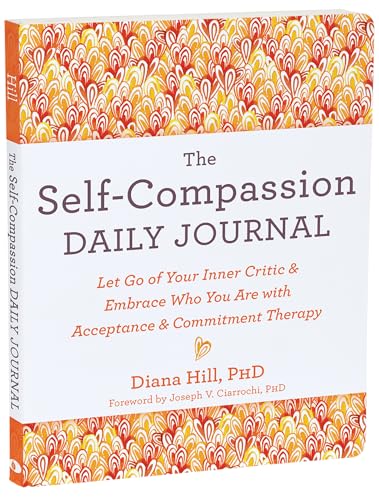When you receive criticism in your relationship, see it as a chance to grow rather than an attack. Stay calm and pause before responding, using questions to clarify and understand your partner’s perspective. Practice self-compassion and view feedback as an opportunity to improve, not perfect. Respond thoughtfully to strengthen your bond and foster mutual trust. By embracing these mindful strategies, you’ll discover how to turn criticism into a positive force for connection and growth.
Key Takeaways
- View criticism as an opportunity for growth rather than a personal attack.
- Stay calm and pause before reacting to manage emotional responses effectively.
- Ask clarifying questions to understand your partner’s perspective better.
- Practice self-compassion and adopt a growth mindset to handle feedback gracefully.
- Respond in a way that promotes trust and strengthens the relationship.

Receiving criticism from a partner can be challenging, but how you handle it makes all the difference in your relationship. When your partner offers feedback, it’s crucial to see it as an opportunity for growth rather than a personal attack. Constructive feedback, when communicated effectively, can strengthen your connection and promote mutual understanding. Instead of defensiveness, focus on listening actively. Take a deep breath, and remind yourself that the goal isn’t to win an argument but to improve your relationship. By staying calm and open-minded, you demonstrate emotional resilience—your ability to bounce back from hurt feelings or discomfort without losing your composure. This resilience helps you process criticism without shutting down or falling into blame, creating space for a healthier conversation.
Handling criticism with calmness and openness strengthens your relationship and fosters mutual understanding.
Approaching criticism with emotional resilience involves recognizing your emotional responses and managing them wisely. When you feel defensive or upset, pause before reacting. It’s okay to take a moment to collect your thoughts, ensuring that your response isn’t driven by immediate emotion. This pause allows you to interpret the feedback more objectively and respond thoughtfully. Remember, your partner’s intention is likely to help, not hurt. By focusing on the message rather than the delivery, you can avoid escalating conflicts and instead foster understanding.
It’s also helpful to clarify and ask questions when you receive criticism. This shows you’re engaged and genuinely interested in understanding your partner’s perspective. Instead of jumping to conclusions or assuming the worst, phrase your questions calmly, like, “Can you tell me more about what you’re feeling?” or “How do you think I could improve in this area?” This not only demonstrates your willingness to grow but also encourages your partner to share their feelings honestly. Over time, this approach cultivates a more positive environment where constructive feedback becomes a tool for building intimacy rather than causing division.
Finally, practice self-compassion. Recognize that nobody is perfect, and everyone makes mistakes. Instead of beating yourself up, see criticism as an opportunity to learn and improve. Embracing this mindset reinforces your emotional resilience and makes accepting feedback easier. When you handle criticism with grace and a growth-oriented attitude, you set a powerful example for your partner and foster a relationship rooted in trust, respect, and continuous development. Remember, how you respond to criticism can either add strain or strengthen your bond. Choose to see it as a stepping stone toward a more understanding and resilient partnership. Recognizing that cultivating emotional resilience is a key factor in healthy interactions can help you navigate conflicts more effectively and nurture greater connection in your relationship.

Heartfelt Communication Skills for Couples: A Life Changing Path to Deeper Intimacy and Profound Emotional Intelligence by Turning Conflict into Connection through Active Listening
As an affiliate, we earn on qualifying purchases.
As an affiliate, we earn on qualifying purchases.
Frequently Asked Questions
How Can I Tell if Criticism Is Constructive or Harmful?
When you wonder if criticism is constructive or harmful, focus on the emotional impact and tone analysis. If the feedback feels respectful and aims to help, it’s likely constructive. But if it’s harsh, dismissive, or makes you feel defensive, it’s probably harmful. Pay attention to how it affects your feelings and whether the tone encourages growth or just blame. Trust your instincts to determine if it’s worth considering or dismissing.
What Should I Do if My Partner’s Criticism Feels Unjustified?
When your partner’s criticism feels completely unjustified, it’s like being hit by a tidal wave of unfairness. Stay calm and practice assertive communication, clearly expressing how their words affect you. Set emotional boundaries by calmly explaining that you deserve respect and understanding. Don’t let unjustified criticism drown your self-esteem—address it directly, seek clarity, and remind yourself of your worth, ensuring your feelings are acknowledged and validated.
How Can I Prevent Criticism From Damaging My Self-Esteem?
To prevent criticism from damaging your self-esteem, focus on self-esteem maintenance by recognizing your worth beyond others’ opinions. Build emotional resilience by practicing self-compassion and reminding yourself of your strengths. When criticism arises, evaluate its validity without letting it define you. This approach helps you stay grounded, maintains your confidence, and fosters healthier relationships where constructive feedback supports growth rather than diminishes your self-esteem.
What Are Effective Ways to Respond to Criticism Without Escalation?
Like a skilled diplomat, you can respond to criticism without escalation by practicing emotional regulation and active listening. Stay calm, breathe deeply, and resist defensiveness. Show you’re listening by nodding and paraphrasing what’s said. This approach diffuses tension and encourages understanding. Remember, your goal is to address the issue thoughtfully, not to win a battle. Staying composed helps transform criticism into a constructive conversation rather than a conflict.
How Do Cultural Differences Influence Criticism in Relationships?
Cultural differences greatly influence criticism in relationships through varied cultural communication styles and criticism norms. In some cultures, direct feedback is welcomed, while others prefer indirect, respectful approaches. You should be aware of these differences to avoid misunderstandings. When managing criticism, consider your partner’s cultural background, adapt your communication style accordingly, and show respect for their norms to foster understanding and maintain harmony.

Allura & Arcia 52 Stress Less & Self Care Cards – Mindfulness & Meditation Exercises – Anxiety Relief & Relaxation
52 EASY EXERCISES FOR EVERYONE: This unique Self Care Deck contains 52 extremely effective exercises for mindfulness, meditation,…
As an affiliate, we earn on qualifying purchases.
As an affiliate, we earn on qualifying purchases.
Conclusion
Remember, handling criticism with grace is like tending a delicate garden—you nurture it carefully to help it grow stronger. When you listen without defensiveness and respond thoughtfully, you build trust and understanding. Embrace feedback as an opportunity to improve rather than a threat. By staying calm and open-minded, you create a healthier, more resilient relationship. Keep practicing these skills, and you’ll find that both you and your partner flourish together, just like a well-tended garden blossoming in spring.

Communication Skills for Couples: Guide to Improve Communications, Resolve Conflict, Deepen Intimacy, Strengthen Marriage and Create a Healthy Relationship
As an affiliate, we earn on qualifying purchases.
As an affiliate, we earn on qualifying purchases.

The Self-Compassion Daily Journal: Let Go of Your Inner Critic and Embrace Who You Are with Acceptance and Commitment Therapy (The New Harbinger Journals for Change Series)
As an affiliate, we earn on qualifying purchases.
As an affiliate, we earn on qualifying purchases.









